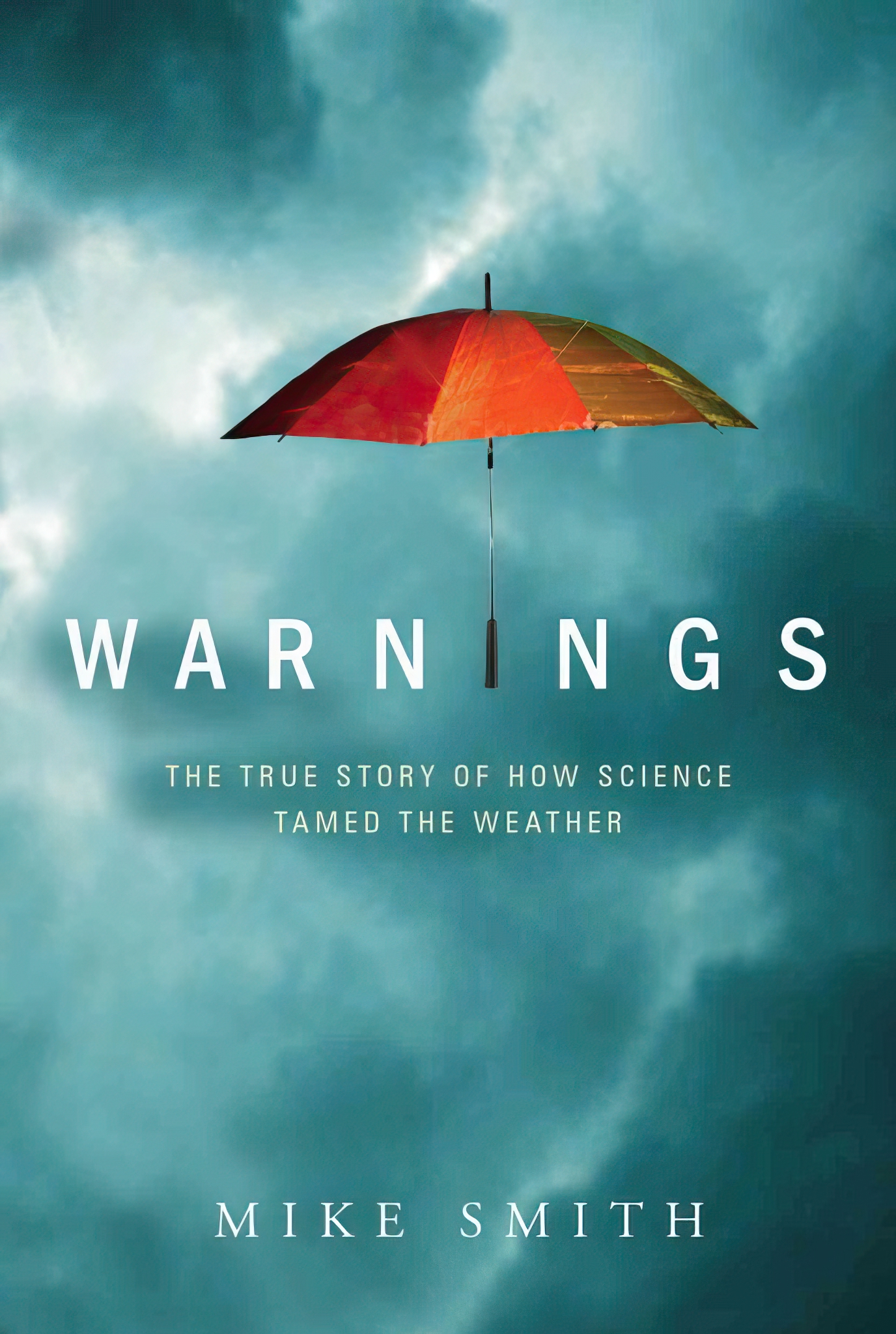 Story: Mike Smith, former TV meteorologist and founder of Weatherdata, Inc., recounts the formative events that inspired him to study weather – particularly severe weather – and take it up as a career. His involvement in forecasting such severe weather events as Hurricane Katrina and the devastating 2007 Greensburg, Kansas tornado (which destroyed that entire town), is covered in detail.
Story: Mike Smith, former TV meteorologist and founder of Weatherdata, Inc., recounts the formative events that inspired him to study weather – particularly severe weather – and take it up as a career. His involvement in forecasting such severe weather events as Hurricane Katrina and the devastating 2007 Greensburg, Kansas tornado (which destroyed that entire town), is covered in detail.
Review: A fascinating read for at least half of its page count, “Warnings” promises to be a history of forecasting severe weather in the United States. The first half of the book delivers on that admirably, taking us from the era when tornadoes just seemed to sneak up on (and kill) an unaware populace to modern times, when the debate usually isn’t “was there a warning?”, but rather “how much lead time did the warning give?”. From the fabled first (and quite unauthorized) tornado warning issued at, and for, Tinker Air Force Bace in Oklahoma City, the development of severe weather forecasting and warning is traced through the use of modified navigational radars from ships to the development of Doppler radar and computer modeling (and the very hands-on human data gathering that has to happen for the computer modeling to be even remotely useful or accurate).
Another strong element of the story is the government bureaucracy that didn’t allow for tornado warnings until the 1960s. “Warnings” has a strong undercurrent of science vs. superstition running through its narrative: meteorologists’ increasing grasp of the factors that, if they don’t cause tornado formation, at least accompany tornado formation with great regularity, and government agencies’ aversion to starting a public panic. (Reminds me of the neighbor who once insisted that I retire my “scary” weather alert radio because it really stressed her out…you know, here in tornado alley, about three hours east of where a lot of “Warnings”‘ narrative takes place.)
Halfway through, however, “Warnings” becomes about how its author started WeatherData, Inc., and how awesome WeatherData, Inc. is. Now, I’m not going to argue with that – I’ve worked at more than one TV station that had a handy little WeatherData terminal – but, in short, the book suddenly becomes a story that wasn’t the story I was hoping to read. Even when Smith does stray somewhat closer to the original narrative, i.e. the bureaucratic train wreck that was the evacuation of New Orleans that never happened with Hurricane Katrina looming, the story is frequently bent backwards to make sure that it touches on WeatherData’s story. Truth be told, there could have been two whole books here, and perhaps there should have been. Jamming both narratives into one volume didn’t do either story any favors.
Year: May 1, 2010
Author: Mike Smith
Publisher: Greenleaf
Pages: 304

